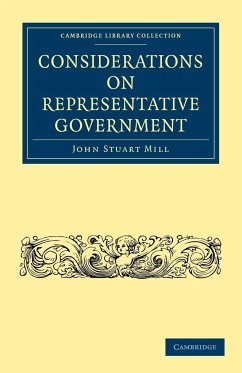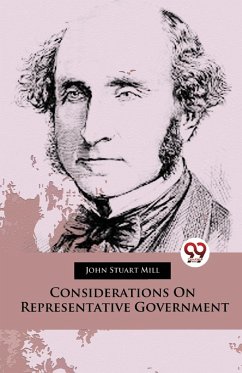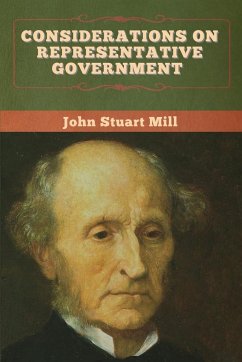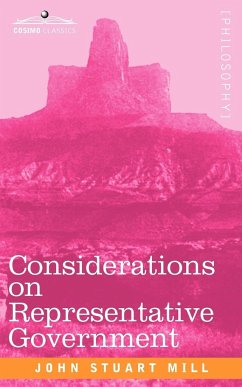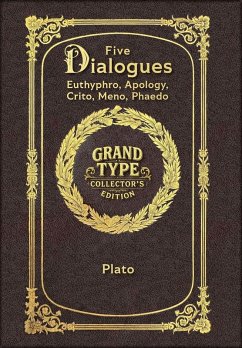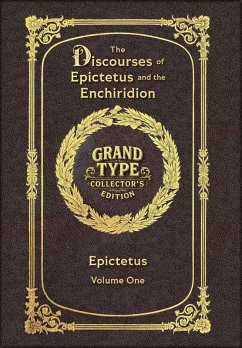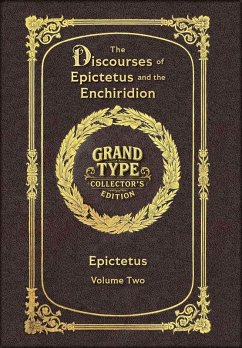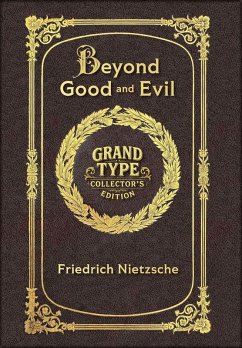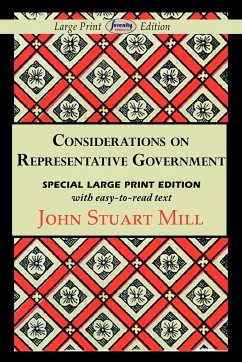
John Stuart Mill
Broschiertes Buch
Considerations on Representative Government (Large Print Edition)
Versandkostenfrei!
Versandfertig in 1-2 Wochen

PAYBACK Punkte
9 °P sammeln!




Large Print Edition, with special easy-to-read text, of Mill's classic work.
John Stuart Mill (20 May 1806 - 7 May 1873) was an English philosopher, political economist, Member of Parliament (MP) and civil servant. One of the most influential thinkers in the history of classical liberalism, he contributed widely to social theory, political theory, and political economy. Dubbed "the most influential English-speaking philosopher of the nineteenth century" by the Stanford Encyclopedia of Philosophy, he conceived of liberty as justifying the freedom of the individual in opposition to unlimited state and social control.Mill was a proponent of utilitarianism, an ethical theory developed by his predecessor Jeremy Bentham. He contributed to the investigation of scientific methodology, though his knowledge of the topic was based on the writings of others, notably William Whewell, John Herschel, and Auguste Comte, and research carried out for Mill by Alexander Bain. He engaged in written debate with Whewell.A member of the Liberal Party and author of the early feminist work The Subjection of Women, Mill was also the second Member of Parliament to call for women's suffrage after Henry Hunt in 1832
Produktdetails
- Verlag: Serenity Publishers, LLC
- Seitenzahl: 366
- Erscheinungstermin: 13. April 2011
- Englisch
- Abmessung: 234mm x 156mm x 20mm
- Gewicht: 556g
- ISBN-13: 9781604508628
- ISBN-10: 1604508620
- Artikelnr.: 33467612
Herstellerkennzeichnung
Libri GmbH
Europaallee 1
36244 Bad Hersfeld
gpsr@libri.de
Für dieses Produkt wurde noch keine Bewertung abgegeben. Wir würden uns sehr freuen, wenn du die erste Bewertung schreibst!
Eine Bewertung schreiben
Eine Bewertung schreiben
Andere Kunden interessierten sich für




